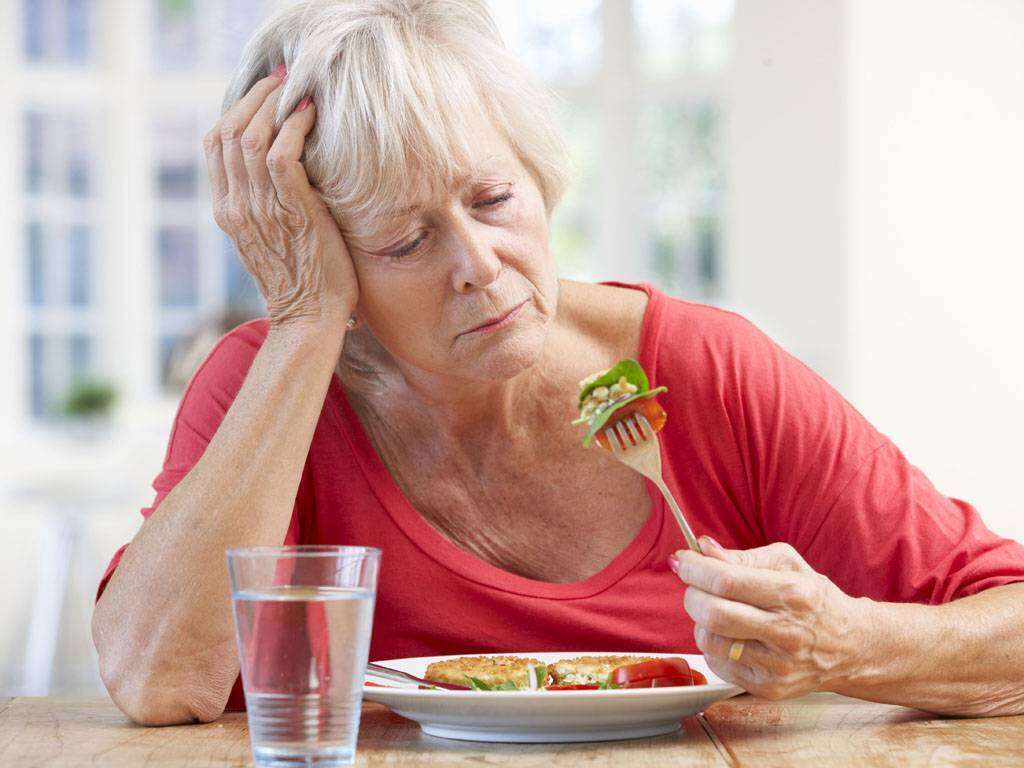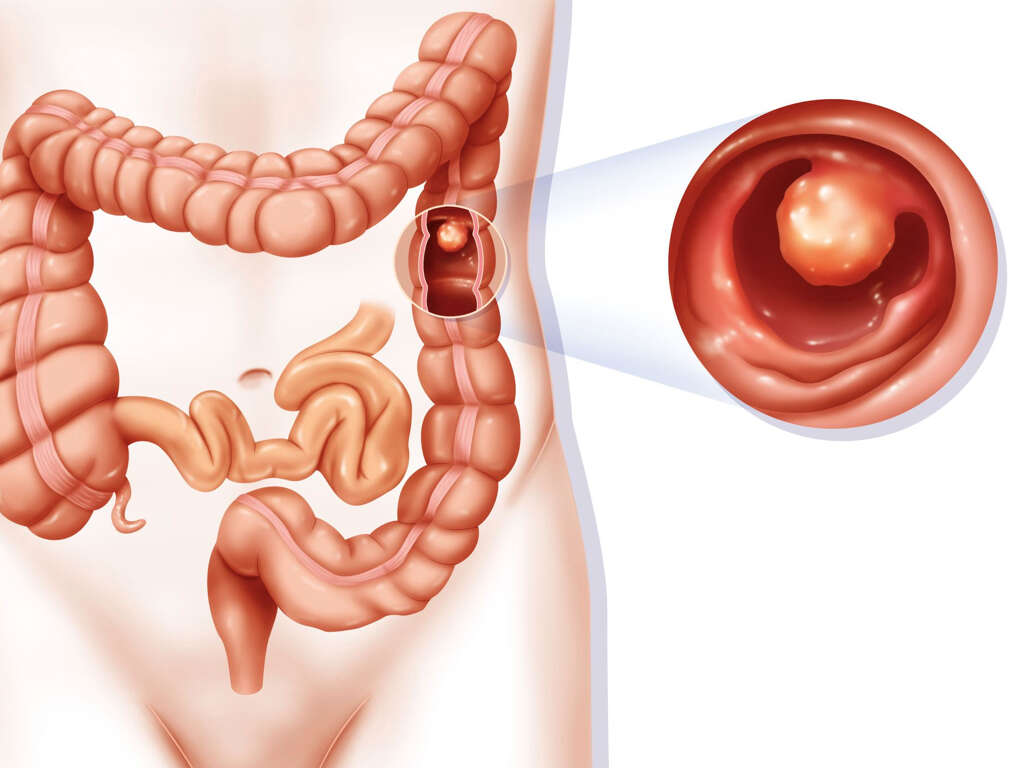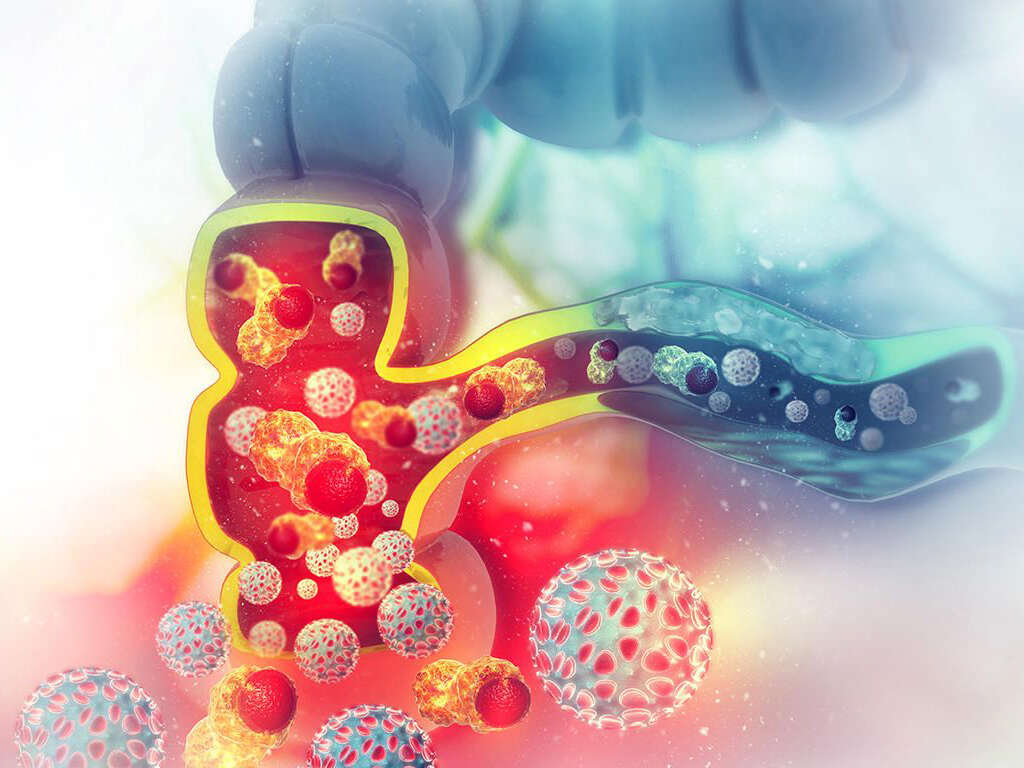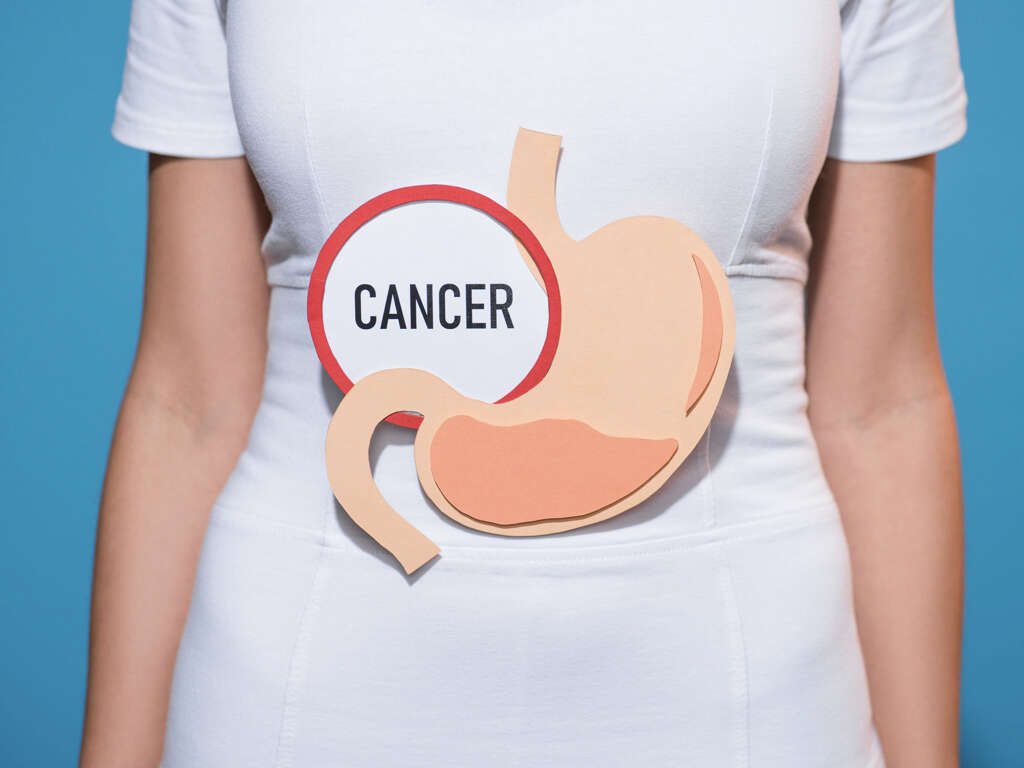10 Stomach Cancer Symptoms
Stomach cancer is also known as gastric cancer. Adenocarcinoma makes up for about 90-95% of it. Sadly, most patients suffering from gastric cancer show no symptoms during the early stages of the disease. Therefore, most of the symptoms in this article are associated with advanced stages of the disease.
Gastric cancer is the sixth most common cancer worldwide and it is the third most common cause of cancer-related deaths as well. The incidence of gastric cancer in the US is much lower (15th most common cancer).

Symptom #1: Heartburn
In the early stages of stomach cancer, there may be frequent indigestion or heartburn. This is described as a burning sensation. However, this is not a characteristic symptom as there are many individuals who have indigestion from other conditions such as hiatal hernia, gastroesophageal reflux disease (GERD), or simply from eating too much.
It occurs when acid in the stomach regurgitates into the esophagus and sometimes into the oral cavity causing irritation to the throat and can lead to a sore throat and cough. Less than 2% of those referred for an endoscopy for indigestion has stomach cancer. While heartburn can be caused by many different conditions, it is also a symptom of stomach cancer.

Symptom #2: Blood in Vomit or Stool
This is another symptom that is non-specific as other gastrointestinal conditions can also cause blood in the vomit and / or stool. However, if you start noticing that your stool looks maroon in color or tarry black, it is likely that there is blood in your stool.
However, your stool can also become darker in color if you are taking iron supplements. If it is in your vomit, it should look red and have a “coffee grounds” texture as it has been partially digested.
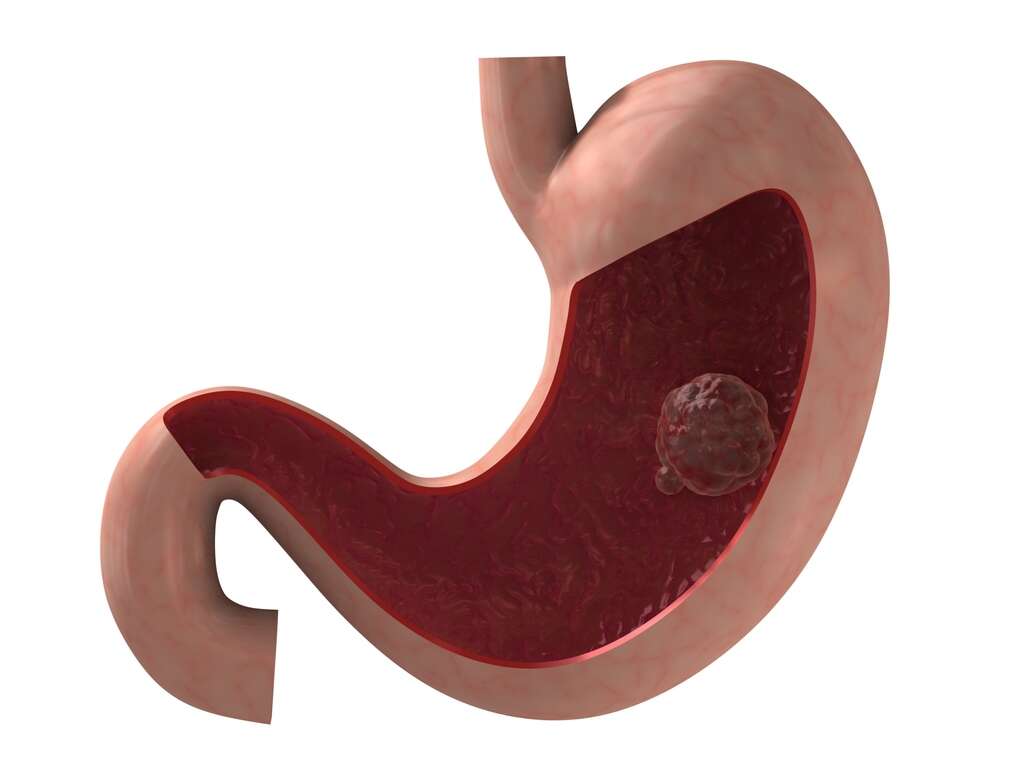
Symptom #3: Low appetite
A common symptom that occurs in most cancers and diseases, you will notice that you have little to no appetite. You may start out being hungry, but your appetite vanishes rapidly and there is no food that appeals to you. This is known as early satiety.
You would know yourself and body best, so, if this is not the norm for you, you should consider seeing your doctor to rule out any harmful causes. Some patients even go without food for days at a time.

Symptom #4: Stomach Pain
While uncommon, there are some patients who experience stomach pain as a sign of stomach cancer. However, when you do experience stomach pain, it is very unlikely that it is due to stomach cancer. Instead, think of more common conditions such as gastritis, food poisoning, or more. Stomach cancer pain feels more like a persistent gnawing in your abdomen.
The pain does not usually go away. Classically, the pain is feels like a dull ache that is located in the middle of your abdomen. Since it is often confused with other conditions that can also cause stomach pain, diagnosis is usually achieved much later, making treatment and management more difficult.

Symptom #5: Weight loss
Regardless if your appetite has been normal, increased, or decreased, you will notice that there is unexplained weight loss. You should be paying more attention especially if there is no change in your daily routine such as increased exercise or workload, eating normally or more, yet you are losing weight.
The weight loss can be gradual, so you may not even notice that there has been a drop in your weight. The best way to tell is to compare your current weight and your weight from six months ago. If the weight loss is not too much, it should not be a cause for alarm. However, if the weight loss is noticeable, yet you did not intend to lose weight, you should talk to your doctor about it.

Symptom #6: Changes in Your Gut Routine
By changes, it means bloating, diarrhea, and constipation. While these symptoms may be vague and non-specific, you should take note if you are also experiencing other symptoms of stomach cancer.
You can always write down the symptoms you have every day in a journal and bring it with you during your doctor’s appointment as it can be of great help to achieve a diagnosis.

Symptom #7: Feeling Unwell
Those with stomach cancer often feel unwell or “under the weather”.
They are not able to specifically pinpoint why as they usually tend to experience tiredness, weakness, loss of appetite, loss of weight, or simply feeling uncomfortable and unwell in general. They may find that they are feeling ill more and more frequently.
This occurs as the body’s immune system becomes susceptible to other illnesses (such as the common cold or flu) while it is battling cancerous cells. While this may just be due to increased stress levels or not getting enough rest, you should still see your doctor to have yourself checked out especially if it has been more than two weeks or if you experience other symptoms of stomach cancer as well.
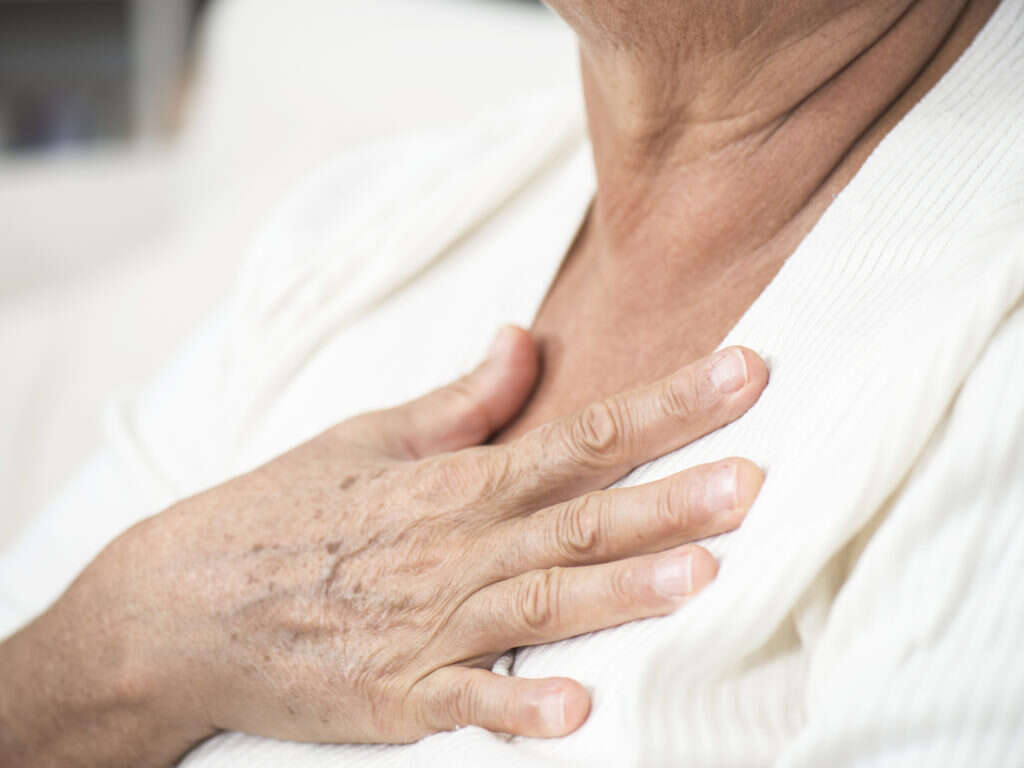
Symptom #8: Jaundice
Jaundice is the yellowing of the eyes and skin. This can occur especially if the stomach cancer has metastasized (spread) to surrounding structures. In this case, jaundice occurs when the cancer has spread to the liver. This means that the patient has an advanced stage of stomach cancer.
The liver is one of the commonest parts of the body for cancer to spread. Other sites of metastasis include the lymph nodes, esophagus, and other adjacent structures.

Symptom #9: Increased Abdominal Size
This is also a symptom of late stage stomach cancer where there is fluid buildup in the abdominal space that surrounds the organs in the abdomen. Medically, it is known as ascites. When ascites is caused by cancer, it is known as malignant ascites.
Some of the signs of ascites include weight gain, breathlessness (due to the pressure of fluid buildup in the abdomen), swelling of the abdomen, bloating, feeling sense of fullness in the abdomen, heavy abdomen, indigestion, changes in the belly button (may protrude due to increased pressure in the abdomen), hemorrhoids, ankle swelling, and decreased appetite.

Symptom #10: Difficulty Swallowing
Difficulty swallowing is also known as dysphagia. Not only does it mean difficulty swallowing, it can also mean pain during swallowing. It can be one of the earlier symptoms of stomach cancer that gradually worsens over time contributing to the patient’s weight loss.
In late stages of stomach cancer, the cancer growth can increase over time to cause obstruction in the gastrointestinal tract depending on the location of the cancer. In these cases, surgery can be performed to reroute the passage of food or in palliative cases where patients no longer want surgery, stenting can be done to enlarge the passage to allow food to pass through.
